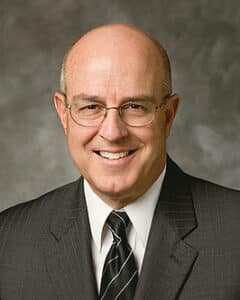After a reading of a blog article entitled “God will give you more than you can handle: I guarantee it” I was refreshed to see that others within the Mormon Community felt similarly regarding a common christian interpretation on scripture that doesn’t mesh well with other Christian teachings. I have heard many assert the idea that “God will not give us more than we can handle.” Aside from being somewhat obscure in its real meaning (after all, what would it look like if we couldn’t handle it? Would we spiritually evaporate?), there is no indication in any scripture that we can handle many experiences that life throws at us, at least not on our own.
The scripture that many use as a source for the idea distorted idea that God will not give us more than we can handle is 1 Corinthians 13:10 which reads:
“There hath no temptation taken you but such as is common to man: but God is faithful, who will not suffer you to be tempted above that ye are able; but will with the temptation also make a way to escape, that ye may be able to bear it.”
I heard the half-read version that people seem to repeat is the one where it ends after, “who will not suffer you to be tempted above that ye are able.” I heard this repeated several times by those whom I taught while serving in the Baton Rouge, Louisiana Mission. I heard it by non-LDS individuals, but I started to hear it more and more by members of the LDS Church, too. It makes me wonder what happened to the rest of that same sentence? Why not repeat that part too?
While life is not all a temptation, and trials or tests are not equal to temptations, mortality itself is a big giant, “we can’t do this on our own.” To Adam came Eve because is was not good for us to exist in this mortality alone. Additionally, we have a Savior, Jesus Christ, because this mortal time period (arguably a gift from God), is more than we can handle; thus the need for a Savior.
After sharing the blog article mentioned above with others, one response came that provoked in me the desire to do some additional study on what “we can bear” means, and how we then cast our burdens upon the Lord so that we may be able to bear this life; or in the words of this verse, find the way that has been provided for us to escape. The goal was to find some way to have a practical guide on how this is done, not simply something that is left to the theoretical or in scriptural language that may feel distant from our own experience for one reason or another.
Matthew 11:28-30 is as practical a guide on how to cast our burdens upon the Lord. however, in order for it to be practical or applicable to our own lives, it requires from the reader more than simple hope, or a passive belief that the ideas and concepts “sound good on paper.” The well known scripture reads:
“Come unto me, all ye that labour and are heavy laden, and I will give you rest. Take my toke upon you, and learn of me; for I am meek and lowly in heart: ad ye shall find rest unto your souls. For my yoke is easy, and my burden is light.”
While this may be a well known scripture, it is not always well practiced. As a result, the blessings of this scripture can feel foreign, if not a paradoxical concept altogether. I have taken the verse separation markings out because the concepts are connected, not three distinct ideas that simply flow well together.
 Elder L. Whitney Clayton classified our mortal burdens this way, “In a general sense, our burdens come from three sources. Some burdens are the natural product of the conditions of the world in which we live. Illness, physical disability, hurricanes, and earthquakes come from time to time through no fault of our own. Other burdens are imposed on us by the misconduct of others. Abuse and addictions can make home anything but a heaven on earth for innocent family members. Sin, incorrect traditions, repression, and crime scatter burdened victims along the pathways of life. Even less-serious misdeeds such as gossip and unkindness can cause others genuine suffering. Our own mistakes and shortcomings produce many of our problems and can place heavy burdens on our own shoulders. The most onerous burden we impose upon ourselves is the burden of sin. We have all known the remorse and pain which inevitably follow our failure to keep the commandments.”
Elder L. Whitney Clayton classified our mortal burdens this way, “In a general sense, our burdens come from three sources. Some burdens are the natural product of the conditions of the world in which we live. Illness, physical disability, hurricanes, and earthquakes come from time to time through no fault of our own. Other burdens are imposed on us by the misconduct of others. Abuse and addictions can make home anything but a heaven on earth for innocent family members. Sin, incorrect traditions, repression, and crime scatter burdened victims along the pathways of life. Even less-serious misdeeds such as gossip and unkindness can cause others genuine suffering. Our own mistakes and shortcomings produce many of our problems and can place heavy burdens on our own shoulders. The most onerous burden we impose upon ourselves is the burden of sin. We have all known the remorse and pain which inevitably follow our failure to keep the commandments.”
The various parts of Matt 11:28-30 are a step-by-step guide to casting our burdens on the Lord, regardless of which of these categories they may qualify. As we go through the verses in Matt 11:28-30, think on the various personal burdens that you carry, and then put each of these steps into a personal plan for your specific circumstances. These steps largely depend on your having, or being open to developing, a relationship with God the Father through His Son, Jesus Christ. This is best done through prayer and study of the scriptures and being in tune with the Holy Spirit for inspiration.
Come unto me…
When I talk to my children and tell them to “come here” it is usually because they have done something wrong and I need to teach them something. Sometimes I say it because I want to give them a hug before they leave the house. In similar respects, I interpret the phrase “come unto me” as the most loving invitation for us to be humble, and open minded to hearing the word of the Lord so that I can be taught, and in turn feel his loving embrace. So, Step 1: Be humble and teachable.
…all ye that labour and are heavy laden…
I have yet to meet a person, even those whom we may consider to be privileged in some way beyond challenges that are common to man, that have not had to carry some burden. Mortality carries with it few surety’s, one of them being that we carry the burden (and potential blessing) of moral agency. No matter how privileged, or how easy some experience temporal burdens, all who are considered to be accountable must then give an accounting of their moral life choices, and likely any sins that we may have committed. Part of the processes of having our burden’s lifted is to know what those burdens are, as well as the source of those burdens. Step 2, recognize or identify your labors, and your burdens. If you wish, write them down and have them before you as you come unto the Lord in prayer.
…and I will give you rest.
This may not seem like a step, but it is a critical component to ensuring that the first two steps are efficacious. Have faith in God’s ability to give you rest. This implies a willingness to accept the rest when it is given, and when it is appropriate. Ecclesiastes 3:1-8 reminds us that there is a time for rest and there is a time to work, and there is a reason for these times.
1 To every thing there is a season, and a time to every purpose under the heaven:
2 A time to be born, and a time to die; a time to plant, and a time to pluck up that which is planted;
3 A time to kill, and a time to heal; a time to break down, and a time to build up;
4 A time to weep, and a time to laugh; a time to mourn, and a time to dance;
5 A time to cast away stones, and a time to gather stones together; a time to embrace, and a time to refrain from embracing;
6 A time to get, and a time to lose; a time to keep, and a time to cast away;
7 A time to rend, and a time to sew; a time to keep silence, and a time to speak;
8 A time to love, and a time to hate; a time of war, and a time of peace.
Trust that the Lord will give you rest, or in the language of these verses, there is a time to heal, a time for peace. For some, this rest comes in proper Sabbath day observance. For others it can actually be death, or a rest from the cares of this world after having lived a faithful and complete life. Rest comes in many forms, and the spirit will help guide you into what is rest, and what is laziness. For we are encouraged, “for it is not requisite that a man should run faster than he has strength” (Mosiah 4:27) as much as we are commanded to come unto Christ and find rest. Step 3: Learn to work to the best of our abilities, and also recognize when the Lord provides rest—then rest.
Take my yoke upon you…
Many have heard the imagery of a yoke used to bind oxen together so that they can be unified and thus multiplied in their strength. For many this is a valuable analogy and is justified in other teachings of the enabling power of Jesus Christ’s atonement. However, it is also helpful to remember that Jesus is not offering to take our yoke upon him (as he has already done that in Gethsemane) to make our burdens light, he is asking us to take upon ourselves HIS yoke, and in so doing our burdens will be made light. Herein lies what many see as a paradox in these verses, “How is my little set of burdens going to be “lighter” that all that God has on his plate?” Some might even wonder why we need to take on any yoke at all if we are to have rest?
As with most gospel “paradoxes” they are in place to test our faith, test us to see if we will trust God in that which we may see as contradiction, or that which we don’t yet understand. In this case, Jesus Christ is inviting the people to put their burdens aside for a time, not take on both “burdens”; but take His yoke upon us. Seeing as God is doing all the heavy lifting of his own yoke, as opposed to us carrying our own burdens alone; in that sense, being yoked to his burden is easy and light. Taking his yoke upon us is to reprioritize, and choose to do God’s will as opposed to our own. Step 4, take a break from your cares for a time, and commit or recommit to making God’s mission statement, our mission statement. Namely, commit to doing what you can to bring to pass the immortality and eternal life of [God’s children].”
…learn of me, for I am meek and lowly in heart:…
This language echoes back to the first three steps, but adds a little more to it. Learning of the life of Christ can have a profound effect on our spirituality. In many ways it is how we come to inherit Eternal Life or exaltation, “And this is life eternal, that they might know thee the only true God, and Jesus Christ, whom thou hast sent.” (John 17:3) To learn of the life of Christ is to come to also know God the Father as Jesus taught that they are unified, “Then answered Jesus and said unto them, Verily, verily, I say unto you, The Son can do nothing of himself, but what he seeth the Father do: for what things soever he doeth, these also doeth the Son likewise.” (John 5:19)
Jesus is again inviting us to learn of him for the sake of seeing what that will change in us with respect to the Father. He is saying, “I am meek and lowly in heart” because as our exemplar, he is showing us how to be humble, and teachable. Learning of God (as stated in the first step) is one way of coming unto Him. Learning of him will also bring to our remembrance the many different times in the history of the world that he has provided rest and salvation. In reading of those stories we are able to see his power, and then trust in that power to be active in our own lives. Learning of the life of Jesus Christ will also help us to know exactly what his “yoke” is and how we can then take it upon ourselves. Step 5: learn of Jesus Christ’s life and teachings so that you may know, through the spirit, how you are to take upon the yoke of Christ at a given point in your life.
…and ye shall find rest unto your souls.
We are reminded again, the second time in as many verses, that doing these steps will provide you rest, and that rest will be with your soul—both body and spirit. It also uses the verb “find” to remind us that this will take effort to discover. Being humble, identifying what our burdens are and where they come from, then learning of the life of Christ, is all subtly implied in “finding rest.” Rest itself is also a verb, an action that we need to choose to make. Step 6: Recognize your efforts in doing the first 4 steps, then accept the promised rest.
For my yoke is easy, and my burden is light.
It is important to remember that Jesus Christ is not saying that we will have no burden, as having no burdens is not truly a blessing. Elder L. Whitney Clayton continued, “Burdens provide opportunities to practice virtues that contribute to eventual perfection. They invite us to yield “to the enticings of the Holy Spirit, and [put] off the natural man and [become] a saint through the atonement of Christ the Lord, and [become] as a child, submissive, meek, humble, patient, full of love, willing to submit to all things which the Lord seeth fit to inflict upon [us], even as a child doth submit to his father.” Thus burdens become blessings, though often such blessings are well disguised and may require time, effort, and faith to accept and understand.” (Italics added)
Here then are the six steps given in Matthew 11:28-30:
Step 1: Be humble and teachable.
Step 2: Recognize or identify your labors, and your burdens.
Step 3: Learn to work to the best of our abilities, and also recognize when the Lord provides rest—then rest.
Step 4: Take a break from your cares for a time, and commit (or recommit) to making God’s mission statement, our mission statement.
Step 5: Learn of Jesus Christ’s life and teachings so that you may know, through the spirit, how you are to take upon the yoke of Christ at a given point in your life.
Step 6: Recognize your efforts in doing the first 5 steps, then accept the promised rest.
If you come to the Lord in prayer and with real intent to act as these verses have laid out, you will receive the promised blessings. In the end, when we cast our burden’s upon the Lord, we should understand that in some respects it is a burden shift. Wether the burdens we see are out of our control like sicknesses or the results of natural disasters, or if they are the result of the choices of others, or wether they are the consequence of our own choices, the Atonement provides rest, as well as the power to exceed our challenges.
Sometimes we hear or read promises from people and think, “That’s too good to be true.” With many things in life, that is a fair caution to take. However, when it comes to God, He promises the ultimate good, and it is eternally true.
Nick Galieti is an experienced podcaster as both producer/host of The Good Word Podcast, and was named the recipient of the 2015 John Taylor: Defender of the Faith Award by FairMormon for his podcasting effort with that organization. Nick has directed and produced two documentaries on the life of Joseph Smith Jr., Picturing Joseph, and Murder of the Mormon Prophet.
Nick is also a published author of the books Tree of Sacrament, and The Exaltation Equation. A past guest of The Cultural Hall (click here to listen), Nick now contributes as co-host of The Cultural Hall Book Club Podcast, and writes regularly for the blog. Nick was born in Southern California, and served a mission to the Baton Rouge, Louisiana. Nick is a freelance sound engineer of over 15 years, is married, has 5 daughters, and now lives in West Valley City, Utah.

